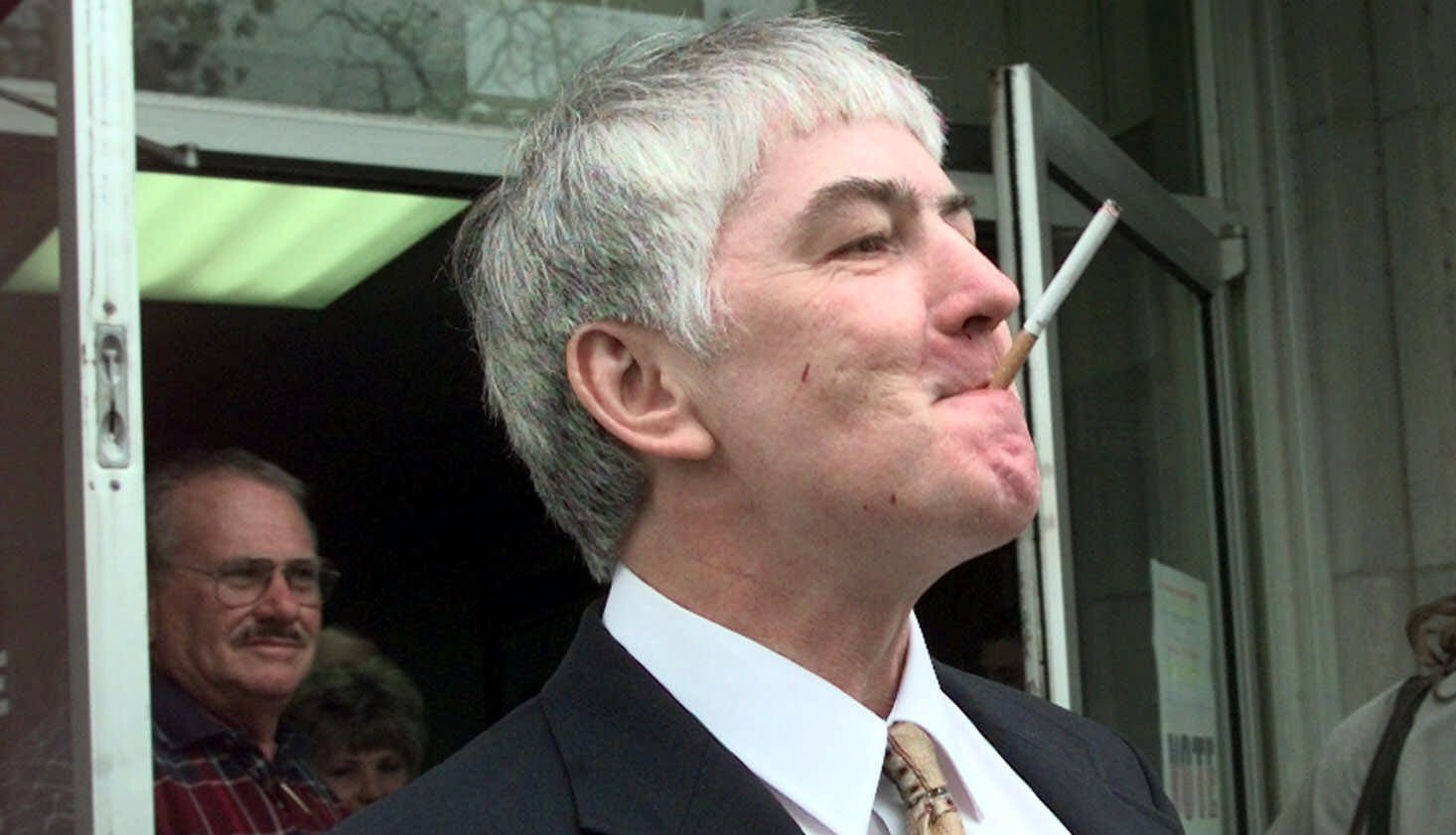Create a free profile to get unlimited access to exclusive videos, breaking news, sweepstakes, and more!
John Grisham Only Wrote Fiction — Until He Read This 'Unbelievable' Obituary
John Grisham's book "The Innocent Man," inspiration for the new Netflix docu-series, tells the story of baseball-player-turned-wrongfully-convicted-murderer Ron Williamson.

“The Innocent Man” docu-series on Netflix is currently drawing in binge-watchers and sparking social media debate. But the story of Ron Williamson's wrongful conviction was actually first told back in author John Grisham’s 2006 book of the same name, which the docu-series is based on. It was a serious departure for Grisham, as it was his first attempt at a nonfiction novel. Before it, he wrote only fiction — best-selling fiction, including the 1989 novel "A Time to Kill."
So why did he decide to go an entirely different route?
He was inspired by an obituary: Williamson's obituary, specifically, which he read in the New York Times after Williamson died in 2004.
“I was taken with it,” Grisham said during a CBS News interview. “It was a fantastic story.”
[Warning: Spoilers for "Innocent Man" ahead]
Grisham spotted the obituary on Dec. 9, 2004, according to a talk he gave at the University of Virginia School of Law in 2006, not long after the book was published.
“I love obituaries, especially New York Times obituaries, because they are very well-written,” he said.
He read the first paragraph of the obituary at that talk: “Ronald Keith Williamson, who left his small town in Oklahoma to become a major league baseball player, but was later sent to death row and came within five days of being executed for a murder he did not commit, died on Sunday at a nursing home near Tulsa.”
He explained the story had several intriguing elements including baseball and (of course) wrongful convictions, according to a video of a talk posted by The Innocence Project, which is why he wanted to take on the tale. He didn't want to fictionalize it, either, for an important reason: Grisham reportedly noted several times that if he had written the book as fiction, it would have seemed too unbelievable, according to CBS.
“I can’t create that kind of stuff in fiction,” he said, referencing the twisty story and the not-so-thorough job police did in investigating Debra Sue Carter’s 1982 murder.
Williamson was convicted and sentenced to death in 1988 for the rape and murder of 21-year-old Carter. He served 11 years on death row before the Innocence Project helped him get released in 1999 thanks to DNA evidence, just five days before he was scheduled to be executed.
After reading the obituary, Grisham called Williamson’s family and he said within a few hours they agreed to let him write Williamson’s story, according to the University of Virginia School of Law talk.
He also called his publisher after reading the obit, declaring that he had his next book. When the publisher pointed out that he didn’t write nonfiction, Grisham replied he’d figure it out.
[Photo: Ron Williamson enjoys his first cigarette as a free man, Thursday, April 15, 1999 on the steps of the county courthouse in Ada, Okla. after serving 12 years in prison. Credit: AP Photo/J. Pat Carter]

























